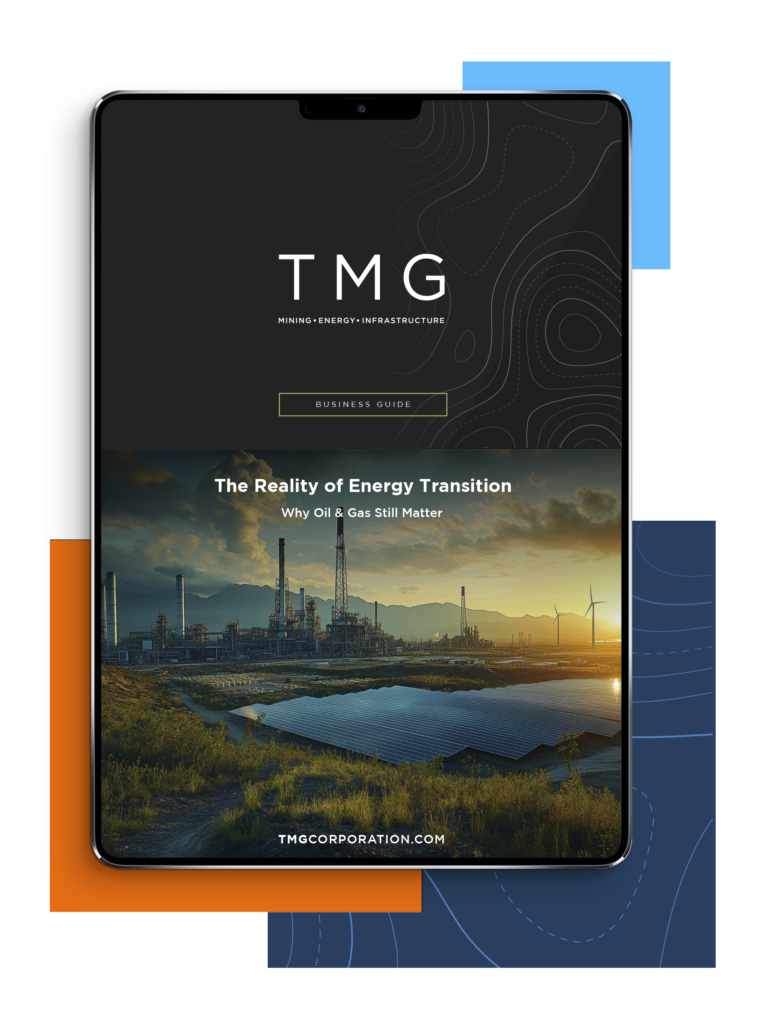Call Us Today: +1 866 205 2414
Global energy strategies continue to focus on reducing carbon emissions while ensuring reliable, affordable power. While renewables like solar and wind are expanding, they face inherent scalability, reliability, and grid stability limitations. In the urgency to transition away from coal and other high-emission fossil fuels, natural gas has emerged as a critical bridge fuel that provides a lower-carbon alternative, enhances energy security, and supports the global shift to cleaner energy sources.
Despite its pivotal role, natural gas is often overlooked in energy policy discussions, particularly among governments and industries pushing for aggressive decarbonization. However, with advanced carbon capture technologies, methane reduction strategies, and increasing liquefied natural gas (LNG) exports, natural gas remains an indispensable component of a realistic and sustainable energy transition.
Coal has historically been the dominant fuel for electricity generation, but it is also the largest source of carbon emissions in the energy sector. Compared to coal, natural gas produces 50-60% fewer CO₂ emissions for power generation. This significant reduction makes it a viable alternative for countries seeking to cut emissions without compromising energy reliability.
Beyond CO₂ reductions, natural gas also eliminates many harmful pollutants associated with coal combustion, including sulfur dioxide (SO₂), nitrogen oxides (NOx), and particulate matter. These pollutants contribute to acid rain, smog, and respiratory diseases, making coal phaseouts an environmental priority and a public health necessity.
While wind and solar are often positioned as replacements for fossil fuels, their intermittency challenges require a reliable backup source. Natural gas power plants can be ramped up quickly and efficiently, ensuring that electricity grids remain stable during peak demand and when renewable output fluctuates. Unlike coal, which takes hours or even days to adjust output levels, natural gas turbines provide rapid-response generation, making them an ideal complement to renewables.
Renewables provide clean energy but come with one major drawback—they are weather-dependent. A grid that relies too heavily on solar and wind without sufficient backup power is prone to blackouts, voltage fluctuations, and price instability. Natural gas solves this problem by offering on-demand, dispatchable power that ensures grids remain functional even when renewable output drops.
Countries aggressively pushing renewables without reliable baseload power have faced energy crises and price volatility. Germany, for example, experienced electricity shortages and high costs due to its over-reliance on renewables after phasing out nuclear and coal. The country had to increase natural gas imports to stabilize its grid and offset wind and solar production fluctuations.
A balanced energy mix with natural gas as a backup for renewables creates a more resilient and reliable power system. Using natural gas as a flexible generation source, utilities can integrate renewables without jeopardizing grid stability, ensuring a smooth transition toward cleaner energy.
The demand for liquefied natural gas (LNG) has surged as nations seek to diversify their energy sources, reduce coal consumption, and enhance energy security. LNG allows natural gas to be transported globally, providing a cleaner, flexible fuel option for countries that lack domestic natural gas production.
LNG provides a stable and scalable energy option for nations not yet ready to transition fully to renewables. It ensures economic growth while meeting emissions targets.
One criticism of natural gas is that, while cleaner than coal, it still produces CO₂ emissions and methane leaks during extraction and transportation. However, recent technological advancements have dramatically reduced the carbon footprint of natural gas production.
Carbon capture technologies allow emissions from natural gas power plants to be captured and stored underground rather than released into the atmosphere. When paired with CCUS, these systems can reduce CO₂ emissions by up to 90%, making natural gas virtually as clean as renewables.
Methane is a potent greenhouse gas, but new monitoring and reduction techniques significantly limit emissions from natural gas extraction. The industry is implementing:
These innovations make natural gas much cleaner, further solidifying its role in the energy transition.
A realistic energy transition strategy requires a mix of renewables, nuclear, and cleaner fossil fuels like natural gas. Countries that have successfully reduced emissions while maintaining energy security have adopted policies that balance renewable growth with natural gas investments.
Energy policies must consider environmental goals and economic realities. Natural gas provides a cost-effective and scalable pathway to reducing emissions while ensuring stable, affordable, and reliable energy.
While renewables will continue to grow, natural gas will remain a foundational pillar of the global energy system for decades. By integrating advanced carbon capture, methane reduction, and LNG exports, natural gas can help nations achieve climate goals without sacrificing energy security.
A successful energy transition does not involve eliminating fossil fuels overnight. Instead, it consists of making strategic, science-driven decisions that reduce emissions while keeping economies strong. Natural gas is essential in that transition, bridging the gap between today’s energy demands and a cleaner future.


Group Manager – Eastern Canada
Varun Persaud is Group Manager – Eastern Canada at TMG, where he leads integrated delivery teams executing projects across the mining, energy, and infrastructure industries. With extensive experience in mechanical engineering, construction oversight, and project planning, Varun is known for driving schedule adherence and performance reliability. He has delivered field leadership for critical assets, including tailings infrastructure at Kirkland Lake Gold’s Macassa site. He is valued for his hands-on leadership, team alignment, and consistent on-budget performance.
Varun provides regional leadership for TMG’s Owner’s Project Management (OPM) engagements, managing interface with contractors, engineering partners, and permitting bodies. He is involved in the technical execution of site development, mechanical systems commissioning, and contractor quality assurance, often acting as the field-level liaison for technical resolution. His ability to interpret and execute against design documents and field constraints ensures real-world constructability and adherence to performance targets.